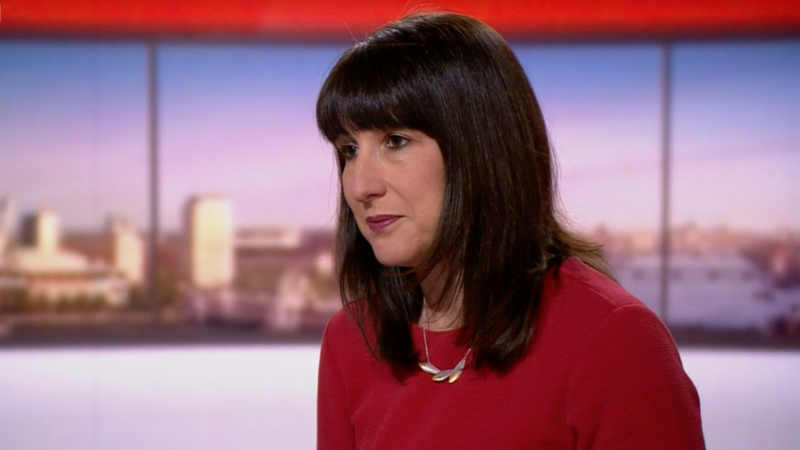
Rachel Reeves has argued the increase in interest rates, from 3% to 3.5%, is “further evidence that the government has lost control of the economy”.
The Bank of England’s monetary policy committee (MPC) announced its decision to raise borrowing costs for the ninth time in a row today, increasing interest rates by half a percentage point and setting them at their highest level in 14 years.
The increase will hike costs for many homeowners on their mortgage payments and for people with loans. Reeves blamed the Tories for “harming growth and leaving millions of working people paying a Tory mortgage penalty for years to come”.
“After 12 years of Tory failure and wasted opportunities, only Labour offers the leadership and plans to stabilise our economy and to get it growing, so we aren’t just surviving, but thriving again,” the Shadow Chancellor added.
“Labour’s green prosperity plan, our modern industrial strategy and our active partnership with business will get our economy firing on all cylinders.”
Reeves outlined what she described as a “radical plan” to make Britain the “high-growth, start-up hub of the world” as she unveils the results of the party’s independent review at Labour’s business conference earlier this month.
The Bank of England’s decision to raise interest rates was not a unanimous vote. The MPC voted by six votes to three at a meeting on Wednesday in favour of the 0.5-percentage-point rise.
Governor Andrew Bailey, Ben Broadbent, Jon Cunliffe, Jonathan Haskel, Huw Pill and Dave Ramsden voted in favour of a half-point rate hike. Swati Dhingra and Silvana Tenreyro preferred maintaining interest rates at 3% while Catherine Mann preferred to increase Bank Rate by 0.75 percentage points, to 3.75%.
The increase is the ninth consecutive meeting in which the MPC has decided to hike interest rates since it raised them from 0.1% to 0.25% in December 2021. The UK is already considered to be in recession – defined as a period in which the country’s economy shrinks for two quarters in a row.
The CPI rate raised hopes that inflation has peaked, as it was reported earlier this week to have fallen to 10.7% for November, down 11.% in October. This still means prices are rising, however, just at a slightly slower rate.
The rise today was widely anticipated by economists and financial markets. The Bank imposed a 0.75-percentage-point increase in October after inflation hit that 41-year high of 10.7%.
Commenting after today’s decision, the New Economics Foundation argued that increasing interest rates is the “wrong medicine for the problems our country is facing”. The think tank said higher interest rates will do little to tackle the main causes of inflation, which it identified as the high price of imported food and gas.
Carsten Jung, senior economist at IPPR and a former Bank of England economist, warned that “there is a risk of over-tightening, causing a ‘hard landing’ for the economy in form of a longer and deeper recession”.
“We have previously argued that interest rates between 3% and 4% would likely be sufficient to bring inflation back down. With rates now at 3.5%, the Bank should slow down rises to give time for the economics of this to play out,” he said.




More from LabourList
‘The hope that kills you’: Reflections from the final day in Gorton and Denton
MPs, union leaders and organisations react to ‘bruising’ Gorton and Denton result
A gory night for Labour